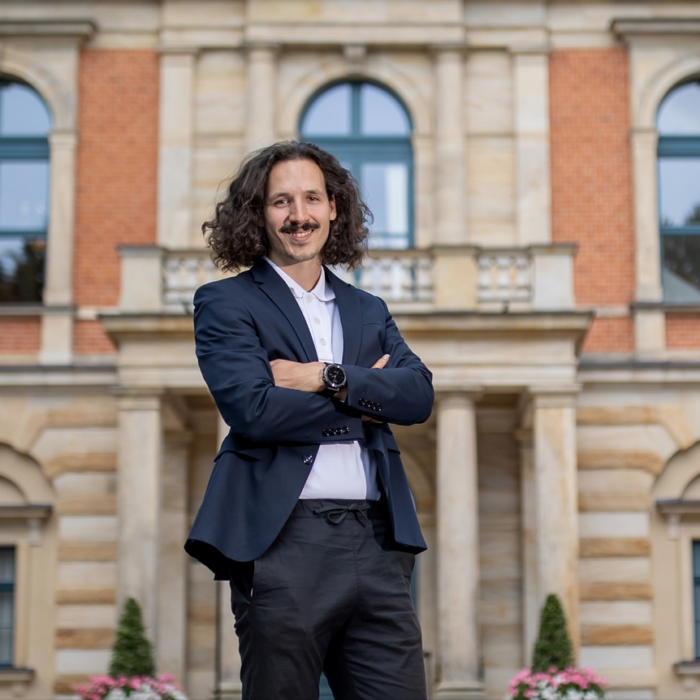
Q & A: Soprano Ana María Martínez on Singing Mimì in San Diego Opera’s Drive-In ‘Bohème’
By Chris RuelOpera fans in San Diego have a real treat in store. Ana María Martínez, one of opera’s foremost interpreters of Mimì, the beloved heroine of Puccini/Illica’s “La Bohème,” has come to town to wow audiences at the Pechanga Arena Parking Lot from October 24 – November 1. The Grammy Award® winning soprano has sung Mimì for nearly 25 years to critical acclaim at houses from the Vienna Staatsoper to the Met.
Stepping into the role didn’t come without danger. COVID-19 hasn’t gone away, and with “Bohème,” San Diego Opera is staging one of the first live performances in the United States since the pandemic shut down the industry in March. SDO is using a production concept that originated in Europe this summer: the drive-in opera. Learning from other companies and working with industry leaders, medical professionals, and government officials, SDO has striven to protect the artists at all times by strictly following CDC guidelines. Martínez says she felt the company took its role in protecting all involved seriously.
In this OperaWire interview, the soprano talks about returning to the live stage as Mimì, COVID safety, and hope.
OperaWire: Here you are singing Mimì eight months after the pandemic struck the United States. What does it mean to perform this role at this moment in time?
Ana María Martínez: Wow. Well, I love Mimì like everybody does, and I consider the characters I’ve been graced to play good and loyal friends. Mimì has been with me for almost 25 years, in fact, it’s almost 25 years to the day when I first sang the role. To sing her again is just — I’m pinching myself! I did not have this show on my agenda, so it’s great to revisit her.
I’m also taking notes to see how this concept works because I think that’s the other responsibility. We need to pay attention to how this production is being done so we can spread the word and hopefully give hope to other companies that want to try something very out of the box. If we do nothing, if we don’t do any experimentation, and just wait for theaters to open, I think we’d be in trouble.
I have also thought, “Do I even remember what it’s like to perform?” Because the few things I’ve done at different companies’ requests have all been online, and there’s no audience there to give you the feedback. Here, if the audience wants to applaud, they might flick their high beams, or honk. Fabulous, just fabulous. I love it!
OW: From where within Ana does Mimì come to life? She’s an iconic character, one of the most beloved in opera.
AMM: I have early memories of hearing “Bohème” at home when I was a child. My mother was a singer and performed with the New York City Opera touring company. She sang Mimì, and when she couldn’t get a babysitter, she dragged me to her voice lessons with the phenomenal Eleanor Steber as her teacher. I kid you not! So, I was, in a way, getting voice lessons. I’d go home, and I’d correct what my mother would do. She’d sing a phrase a certain way, and I’d say, “That’s not what Steber told you to do. She told you to do this.” I was 8.
From an emotional standpoint, I feel that Mimì is quite introverted, and a bit shy at first until she feels comfortable, and then she really opens up. Of all the characters I’ve portrayed, I think she’s the one that I can relate to the most. It’s a very real thing for me to step into that shyness.
I don’t even think I would have dared to knock on the door. I think Mimì knocks because she’s been hoping, and she keeps putting it off. She doesn’t have the guts until finally she does. At her age, I didn’t have those guts, you know; that’s how introverted I am by nature. Of course, I’ve come out of my shell; I had no choice in this business; I had to come out of myself. I think Mimì is all love. She’s a heart with a woman around it. That’s basically who she is. She actually gives me a lot of peace and calm. It’s almost as if her love is nurturing me through the performance and through the rehearsal process.
Mimì’s been with me from the beginning of my career, and I think all singers can relate to this. When you’re starting out, every single opportunity you’re given feels like a tremendous achievement and a tremendous gift. And you don’t know how far it’s going to go.
OW: What is it about “Bohème” that makes it the perfect choice for SDO’s drive-in production?
AMM: There are so many ways we could interpret the opera and yet we always see more or less the same whether it’s set in the past, present, or future. You’re still going to have basic blocking that never changes because it’s just such an honest story with honest emotion. With the SDO production, there are maybe two or three different dimensions happening at once. This is how Keturah Stickann [SDO’s “Bohème” stage director] envisioned the storytelling because we’re limited to the confines of the guidelines set by the CDC and AGMA, our union. The show can work without us having to be right next to each other, and the tension between the characters remains palpable. I think it’s one of the few stories that could lend itself to this kind of format.
OW: SDO’s production of “Bohème” is one of the first to go live in the US. Tell me what the company has done to ensure the artists’ safety.
AMM: They’re implementing everything that the CDC recommends. They sent me multi-page document — I forget how many pages there were — and I needed to review it carefully, understand the guidelines, and sign it. On the first day we began rehearsals, everyone had to have a COVID test and then those results were sent back to the opera. Thank God everybody tested negative. Each day, we have our temperatures checked and we must answer questions like the ones asked if going to a doctor’s office; Have you had any recent chills, fever, any unexplained body aches? Have you been in close contact with anyone who tested positive? If we feel we have any symptoms, we have to notify SDO immediately, stay home and go get a test.
We rehearsed the show in a parking lot. Our seats had our names on them and spaced 6 feet apart. There’s hand sanitizer everywhere! The company gave us singer masks, however, once we established how far away we were from each other, we usually took them off to sing and put them back on immediately once done. During rehearsals the measuring tape was used to make sure we were within a safe distance, remaining 15 ft apart if singing toward each other in open air and 5 feet apart — that’s the closest we can get — if we’re singing out because of the droplets. When our director, or anyone on the production team, gets close to discuss something in the scene, we don’t even have to think about putting on the mask; it became automatic.
What’s lovely is our excitement to be here. We know we can’t violate the rules and guidelines and yet we’re able to geek out on technical stuff because we haven’t been able to have those kinds of conversations with our fellow singers or to listen to them live and say, “I love how you’re phrasing that. How is that for your voice?”
I can only talk for myself, but I think we all feel very safe, protected, and taken care of. If we rehearsed in an enclosed space, it wouldn’t work and we would be very anxious.
OW: You work extensively with young singers. What advice would you give them about pressing forward and hoping for a bright future?
AMM: The young artist might say, “Uh-oh, what’s going to be there for me?” I want to say that the older generations and some companies are looking at you and saying, “What will you think up and create to keep this art form alive?” So young singers are, in many ways, in the driver’s seat. It’s an opportunity because the theater is closed, and so many organizations are producing beautiful online content, thinking outside of the box, and doing innovative things. Hopefully, that’s providing food for thought within the younger generation about what they want the art form to look like in the future.
OW: Do you have any final thoughts for readers?
AMM: Audiences are missing the live arts as much as the performers are missing the stage. I would say — and I’ve heard several people talk about this — if anyone thinks the arts are fluff and don’t matter, then why are we all streaming things; music and films and television into our homes? It’s because it’s art that gets us through our daily life, especially during hard times. So I want to say to everybody, hang in there because we will get past this.
I was brought up with a beautiful expression: “Hay que vestirse con paciencia” — “One must dress themselves in patience.” We must thrive to the next level, and we will. We will.



